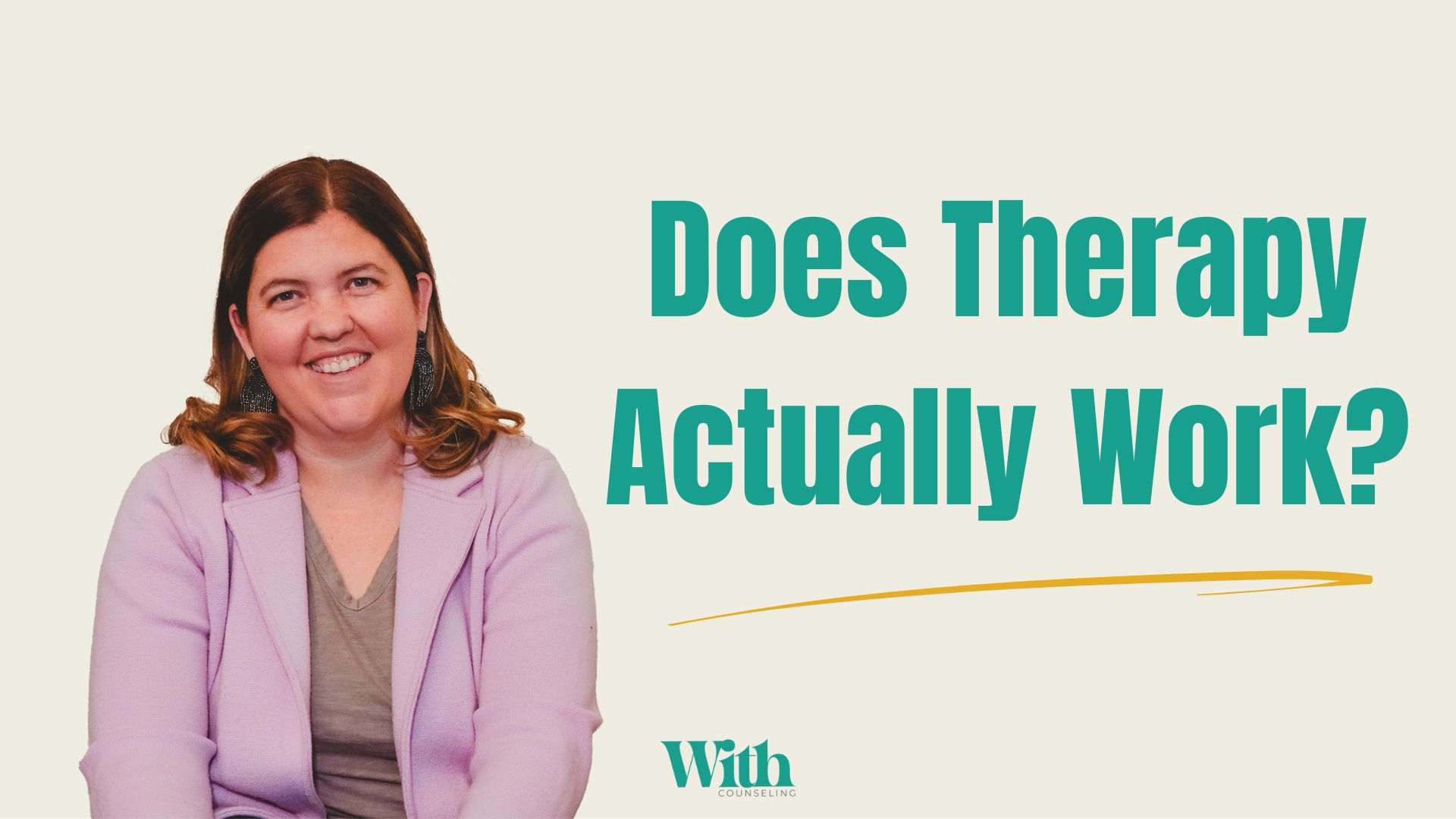

Welcome to the With Counseling Podcast! I’m JJ Blandford, founder and therapist at With Counseling. On today’s episode, we are answering the question: Does therapy actually work? You can listen to the episode by clicking the play button above.
What Happens in Therapy?
Many people wonder what actually happens in therapy. A friend recently asked me, “What do you even do in therapy?” This is a great question, especially for those unfamiliar with the process. Therapy can be different from what people expect.
At its core, therapy is a process where you sit with someone to explore your emotions, thoughts, and behaviors. It’s about working through challenges, identifying patterns, and gaining insight into your mental and emotional well-being. Therapy is not about a therapist “fixing” you but rather about holding space for you to process and grow.
The Importance of Expectations
A common misconception is that therapy is a quick fix. People often come in with an idea of what they want to work on—such as anxiety—but may not realize that deeper, underlying issues contribute to their symptoms. Therapy is a journey that requires openness and flexibility. You may enter therapy thinking you need help with one issue, only to discover that the real work lies elsewhere.
Processing Emotions
One of the key aspects of therapy is processing emotions. Anxiety, for example, often manifests as an internal “spinning” feeling. Speaking your thoughts out loud in a safe space can help release some of that internal turmoil. Verbalizing your emotions can also help you recognize whether a problem is small and manageable or a deeply rooted issue that requires more attention. This process helps reduce the power of unspoken fears and emotions.
Finding the Right Therapist
Therapy works best when there is a good fit between client and therapist. Different therapists have different styles—some are structured and directive, while others take a more gentle, exploratory approach. If a therapist’s style doesn’t align with what you need, it doesn’t mean therapy won’t work for you; it just means you may need to find a different therapist who is a better fit.
Why Therapy Sometimes “Doesn’t Work”
If someone says therapy didn’t work for them, there could be several reasons:
- Poor Fit: The therapist’s approach may not have matched the client’s needs.
- Readiness for Change: The client may not have been emotionally ready to address deeper issues.
- Unrealistic Expectations: Therapy is a process that takes time, and some may expect immediate results.
- Life Circumstances: External factors like financial constraints or personal responsibilities may make it hard to fully engage in therapy.
The Impact of Therapy Over Time
Healing and change take time. Many clients feel temporary relief after a session, but lasting change requires ongoing effort. Therapy helps people develop coping skills, build self-awareness, and create healthier patterns. If people sought therapy before reaching a crisis point, they might navigate life’s challenges more effectively.
Final Thoughts
So, does therapy work? Yes—but it requires commitment from both the client and the therapist. Therapy is about showing up, being open to the process, and trusting that change is possible. It’s not about quick fixes but about building a stronger foundation for mental and emotional well-being.
If you’re considering therapy, approach it with an open mind. You never know what insights and growth may come from the journey. Thanks for joining us on this episode of the With Counseling Podcast!
